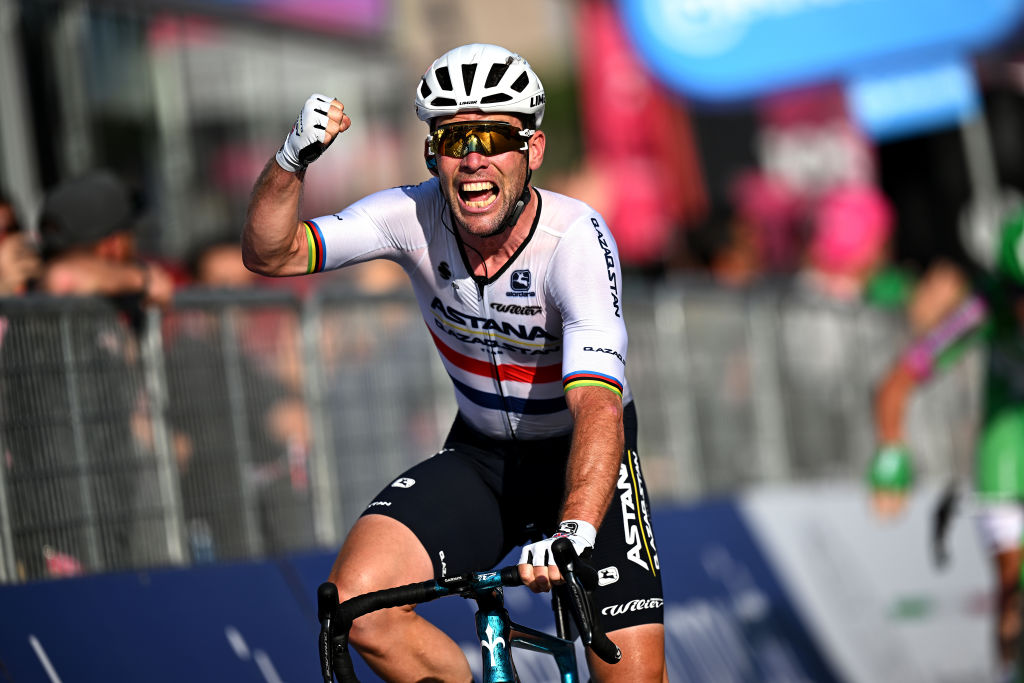Mark Cavendish will not take part in the Giro d’Italia in 2024 according to Astana Qazaqstan management, with the Briton opting for a reduced racing program and more training camps prior to making his bid for a record-breaking 35th Tour de France stage win in July.
Cavendish took part in the Giro in 2023, clinching the win on the last stage into Rome. He then went on to do the Tour de France, finishing second in one stage before crashing out with a broken collarbone.
However, the veteran sprinter looks set for a very different build-up to the Tour de France next year, starting with his first-ever participation in the revived Tour Colombia following an altitude training camp in early February.
The Giro, though, where Cavendish has won 18 stages to date, is not part of the plan, although Scheldeprijs, where Cavendish took third last year, will be included as the last race of his first part of the season as well as two weeks training in Greece.
“We’ll do a second altitude camp for Mark before the Tour,” Astana Qazaqstan team manager Alexander Vinokourov told Cyclingnews.
“It’s also useful because the Tour de France is very mountainous this year, and the first week” – which includes a very hard opening stage in Italy and then a demanding trek through the Alps on stage 4 – “is very tough indeed. We have to work hard on how he handles the climbs.”
While recognising that the Giro stage win in Rome represented a big boost to morale, both for Cavendish and for the team, Vinokourov said “I don’t think he’ll do that this year. He’ll do a block of training in the mountains and then go direct to the Tour, not go there via the Giro.”
“The start of the Tour de France will be really hard and it will be really intense,” new head team trainer Vasilis Anastopoulos told Cyclingnews when asked about Cavendish’s boosted focus on altitude training, “so all the guys have to be on the top of their game.”
“The sprinters will have to suffer for five hours on these stages even before they get to the sprint. So they have to be in the best possible physical condition.”
“That’s why we’ll do two or three altitude camps during the season to prepare them as best possible for the Tour de France.”
“But it’s also part of a process we’ll do camps, some specific races, then have a recovery period, camps-races-recovery and then the final preparation for the Tour.”
“Also that’s why we skip a lot of races this year, reduce around 10 or…
Click Here to Read the Full Original Article at CyclingNews RSS Feed…

